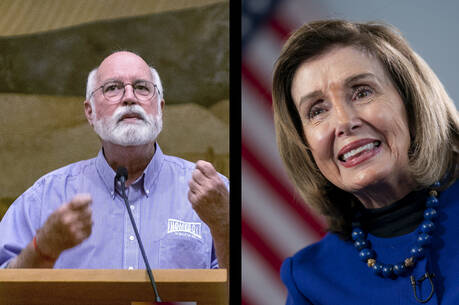In this week’s New Yorker, columnist Michael Kinsley describes what he calls the last competition of his aging boomer generation, i.e. who can live longest and die the best death, {Read "Mine Is Longer Than Yours".) You win if you can live longer than your peers and stay in good enough health to remain a player in career and family life. When death can no longer be staved off by modern medicine the best death is the quickest and most painless, providing just enough time to tidy up your affairs. Kinsley is an ironic cultural observer, as well as brutally honest about his own struggle to stay alive and in the game despite Parkinson’s disease. His discussion is also quite faith free; there is no mention of spirituality, or God, or any life hereafter. I note the chilly religious void in its complete contrast with the depictions of a good death in historian Drew Gilpin Faust’s new book, "This Republic Of Suffering: Death And The American Civil War." She analyzes in detail the accepted conditions for a good death held by northern and southern soldiers and their families. Ideally, the dying person should be conscious of their fate, be willing to accept it, give signs of belief in God and their own salvation and be able to leave messages and exhortations for those left behind. Christian fortitude, hope and resignation set the standard for dying well. Facing death does appear to clarify the mind in every generation. So what do we come up with in our own case? Sidney Callahan
A Good Death?
Show Comments ()
1
Comments are automatically closed two weeks after an article's initial publication. See our comments policy for more.
16 years 1 month ago
While I am sympathetic to Kinsley's medical condition, I am bothered by his self-centered view of life and death, and by the "chilly religious void" in his article. Kinsley may be an "ironic cultural observer" in some respects, but I didn't find much in the way of irony in this article. Perhaps that was because I read the article with awareness of his atheism, which he has spoken about in several articles, including in a book review last year in the Int'l Herald Tribune of Christopher Hitchens's book, "God Is Not Great."(Kinsley lavished praise on the book.) Kinsley's choice or inclination not to be other-centered was also evident in an article he wrote in 2006 for the Washington Post about embryonic stem cell research: "Even strong believers in abortion rights (I'm one) ought to acknowledge and respect the moral sincerity of many right-to-lifers. I cannot share, or even fathom, their conviction that a microscopic dot -- as oblivious as a rock, more primitive than a worm -- has the same human rights as anyone reading this article. I don't have their problem with the question of when human life begins. (When did "human" life begin during evolution? Obviously, there is no magic point. But that doesn't prevent us from claiming humanity for ourselves and denying it to the embryo-like entities we evolved from.)" I agree that "[f]acing death does appear to clarify the mind in every generation," but I hope that Kinsley's 'me-first' attitude is more the exception than the rule in this generation.
The latest from america
The two high-profile Catholics are among a diverse group of 19 individuals to be honored by President Biden for making “exemplary contributions to the prosperity, values, or security of the United States.”
Speaking May 3 on the need for holistic higher education, the pope said that some universities are “too liberal” and do not place enough emphasis on forming their students into whole people.
Manifesting techniques abound in the online world. But creators are conflating manifesting with prayer, especially in their love lives.
This week on Jesuitical, Zac and Ashley share their conversation with Cardinal Wilton Gregory—the archbishop of what he calls “the epicenter of division”—on the role of a church in a polarized society.







